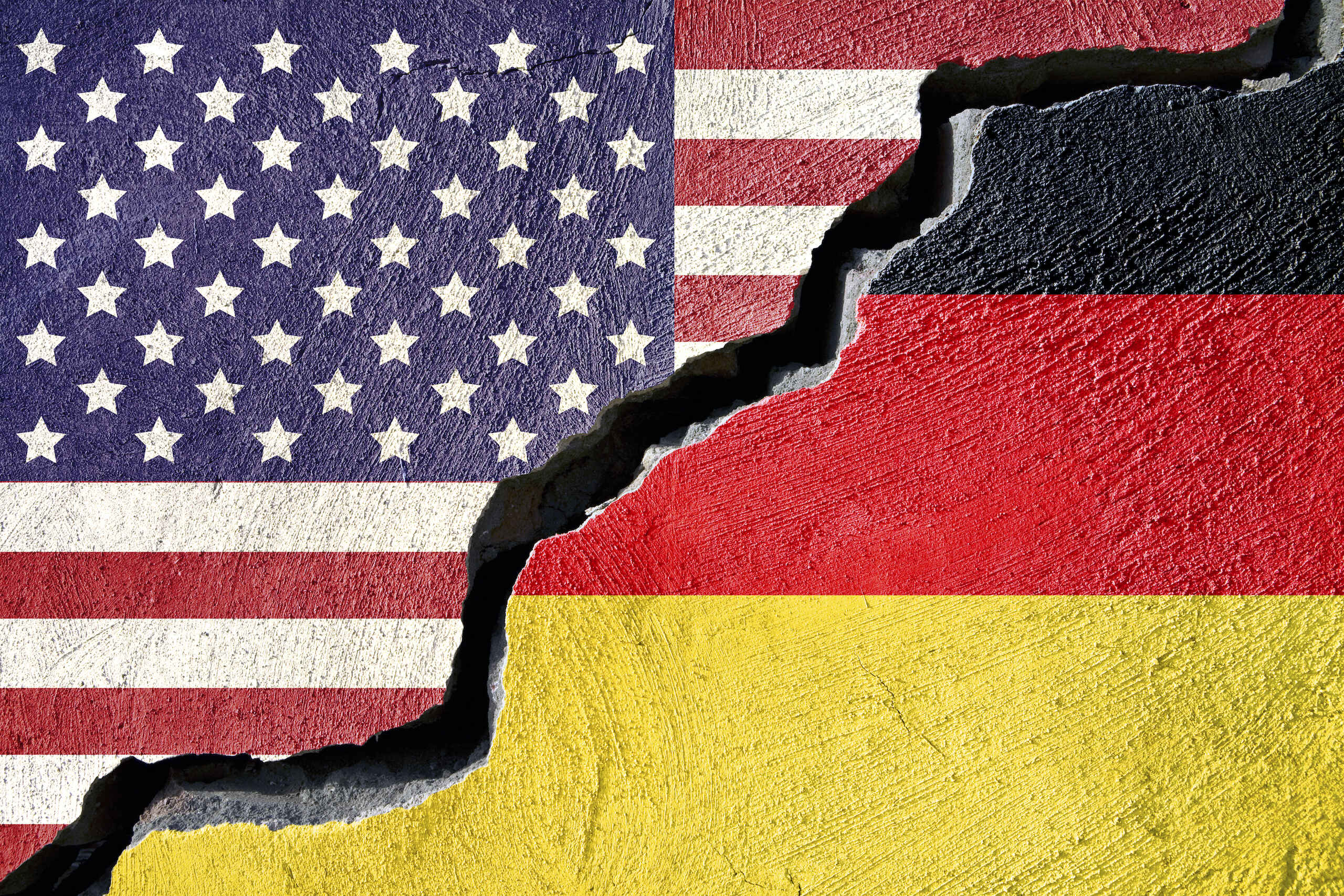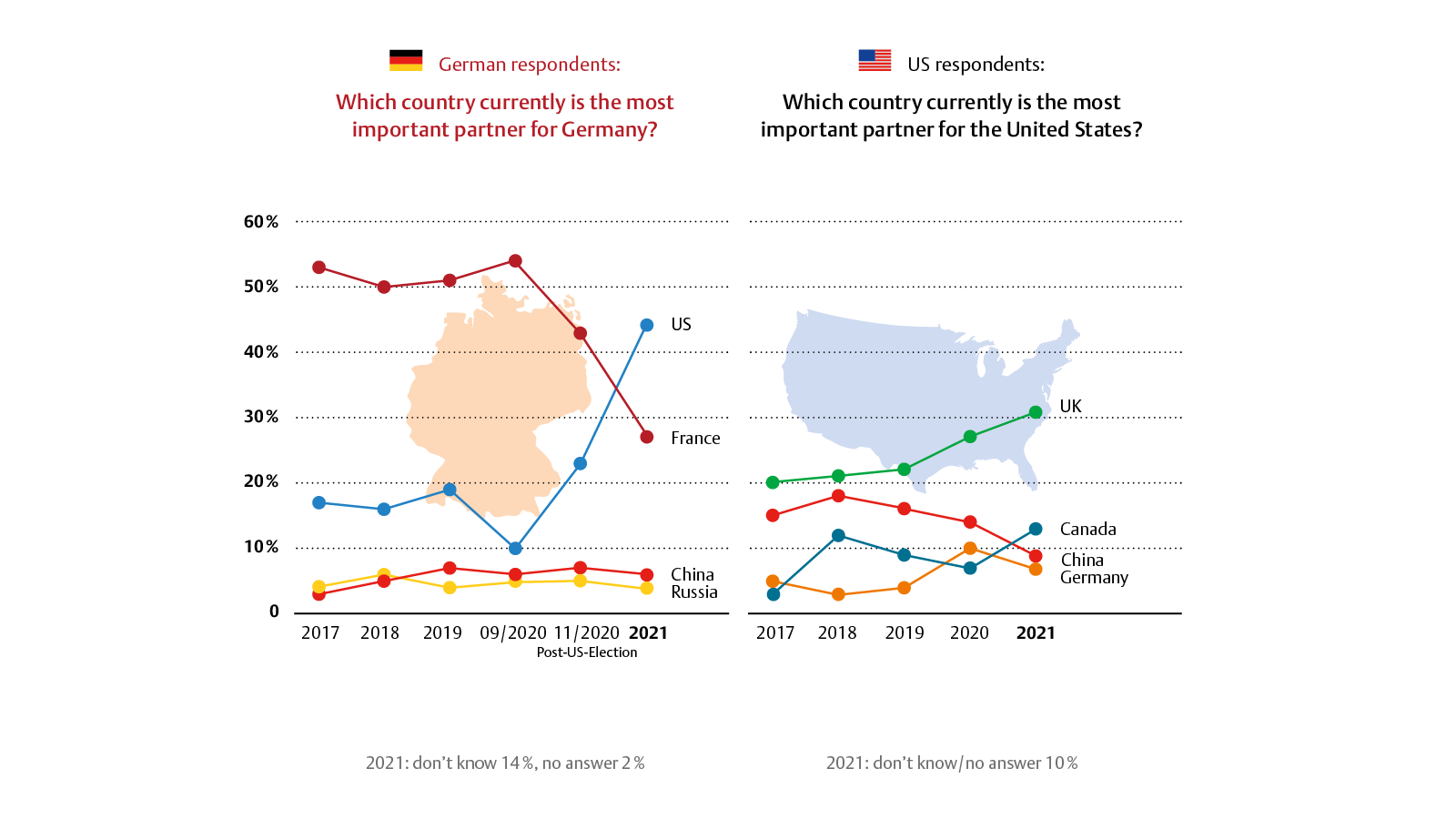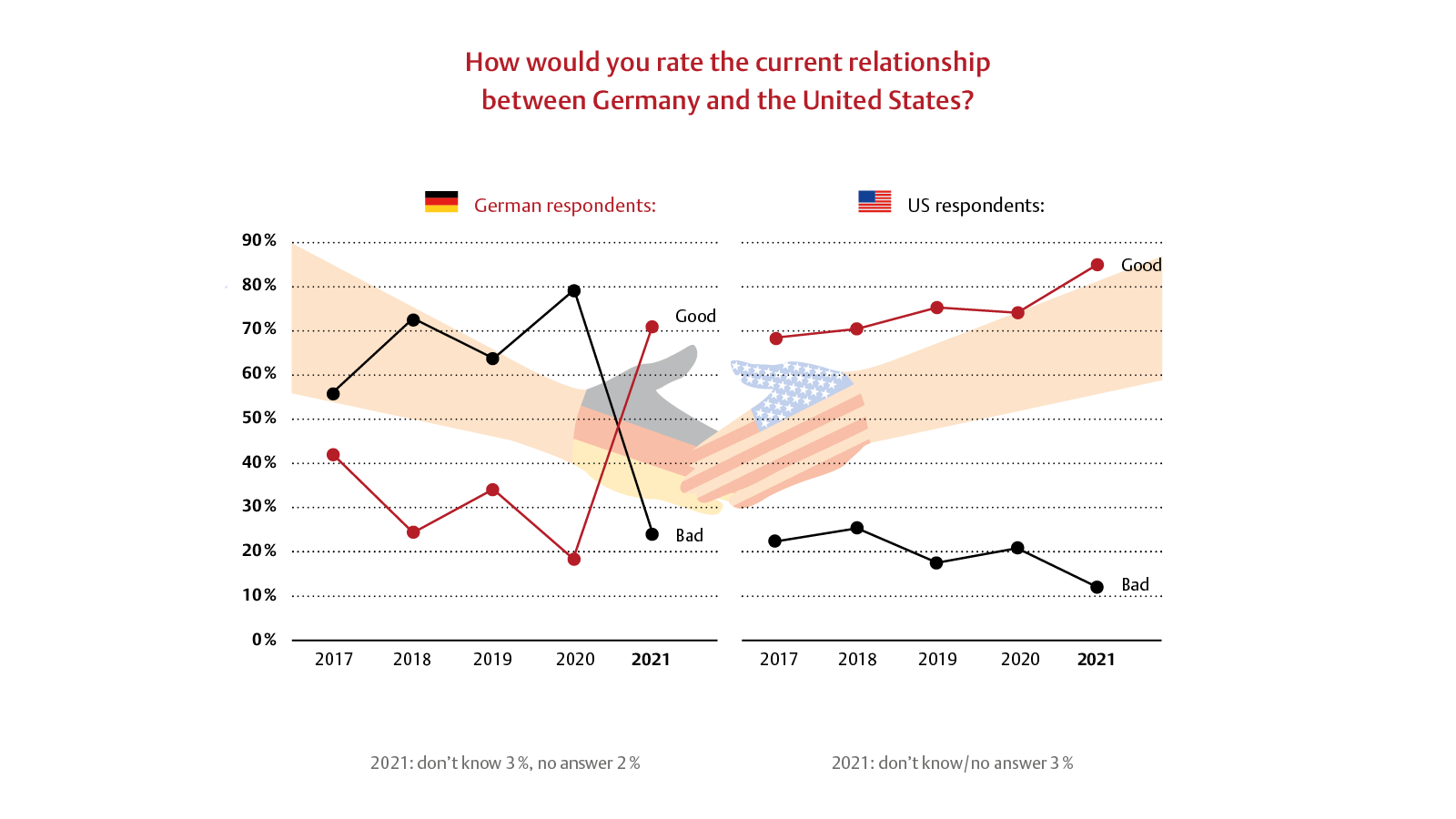
Foto: iStock/Jorge Villalba
Why Germany is Resistant to Change
A post-Merkel Germany will continue to pursue a neutral foreign policy, which will increase transatlantic divisions
by Heather A. Conley
Heather A. Conley is senior vice president for Europe, Eurasia and the Artic and director of the Europe, Russia and Eurasia Program at the Center for Strategic and International Studies in Washington DC.
Change is hardly ever desired in Germany. Moreover, German foreign policy is hardly policy. It is rather a complicated mix of historical guilt and what is considered acceptable social behaviour to German society. Changes to German foreign policy are only sought by non-Germans, many of them in the US national security community, who continuously insist that Germany should ‘lead’. They are almost always disappointed. On those rare occasions when change does occur, it is sudden and without warning – most memorably in 2015 when Chancellor Angela Merkel decided to welcome 1.5 million refugees.
The lack of change in Germany’s international behaviour is firmly rooted in its preferred position of neutrality. In a 2019 Pew Research Center survey, 60 per cent of German respondents said they would not support NATO’s Article 5 commitment (‘an attack against one is an attack against all’) should Russia attack another alliance member. When asked in 2020 what Germany’s stance should be in the event of a ‘new Cold War’ between the United States and China, 82 per cent of German respondents said neutrality as captured in the annual The Berlin Pulse survey.
“Therefore, a post-Merkel Germany will be mostly characterized by policy continuity that will largely be negative for transatlantic relations.”
When asked what they thought of China’s rising influence in that same survey, 43 per cent said they were neutral, but German public opinion may be shifting on China: only 34 per cent would be neutral in 2021.
Therefore, a post-Merkel Germany will be mostly characterized by policy continuity that will largely be negative for transatlantic relations. Uncoordinated transatlantic carbon-tax policies, a lack of resolution on transatlantic data transfers and US technological dominance will widen existing transatlantic disputes and intensify divisions. In addition, the more energy is required in Europe to address deepening divisions between an economically conservative north, a debt-laden south, an illiberal and intolerant east and an impatient west as well as the growing challenges to the supremacy of EU over national law, the less political space for transatlantic problem solving.
Germany’s lack of change
Should the official coalition talks be successful, an SPD-led, Ampel coalition will likely say very little about increasing German defence spending and ensuring its nuclear burden sharing responsibility. The coalition will parse its words very carefully on its policies toward Beijing and Moscow, particularly regarding the Nord Stream 2 pipeline, because of the lack of agreement between the SPD and The Greens on these sensitive foreign policy subjects. Despite the evolution in some German thinking about the economic and political challenges that both Beijing and Moscow pose to long-term German interests, the same policies will be followed. Such policy continuity will be perceived quite negatively from a US perspective.
Unfortunately, the Biden administration has great, but misplaced, hopes that both the current caretaker and future German government will take more decisive action to support Ukraine, push back against Russian energy manipulation of Europe and support a tougher approach to China, particularly following President Biden’s controversial decision to not pursue sanctions against German interests in Nord Stream 2 as required by US law.

Neutrality is no longer an option
German policymakers must be aware that their country becoming a larger and more important Switzerland will reduce NATO’s effort to be more robust strategically and militarily, and that this will be in conflict with the EU’s security and defence aims. Especially with the embarrassing exposure of European countries’ reliance on the US military following its withdrawal from Afghanistan, there will be renewed calls across Europe for a separate European defence posture.
While it is uncertain whether this rhetoric will translate into more significant European defence, Germany should increase its military mobility, redouble its efforts to strengthen NATO as the central political forum and support the alliance’s partners – particularly Ukraine and Georgia – in building their defence capabilities. US-German cooperation could be better leveraged in more actively engaging civil society to promote transparency and accountability in the Western Balkans, Central Europe, the Eastern Partnership countries, Turkey and Russia as an important start. Civil society dialogue and citizen engagement – particularly between young people who seek a more dynamic, climate-focused and less corrupt future – can in turn produce real change. Such an approach will renew democracy at home and abroad while challenging kleptocratic and illiberal regimes.
“Change may not be welcome in Germany, but it is coming.”
Another opportunity for US-German cooperation is in strengthening shared future technological competitiveness. The Pfizer/BioNTech consortium is an impressive example of joint technological advancement. Big US firms – such as Apple, Google or Tesla – have recently made major investments in Germany. While some may make these investments because of European demands for data localization, they are also investing in the future of Europe’s largest economy. Strong US-German technology ties and smart regulation would help counter trade competitors such as China that seek to curtail Germany’s industrial advantage.
Change may not be welcome in Germany, but it is coming. The transformation of the international system demands it. The transatlantic relationship can either continue to be the values-based operating system for the international community or cede ground to an illiberal or authoritarian operating system. Neutrality is no longer an option.
